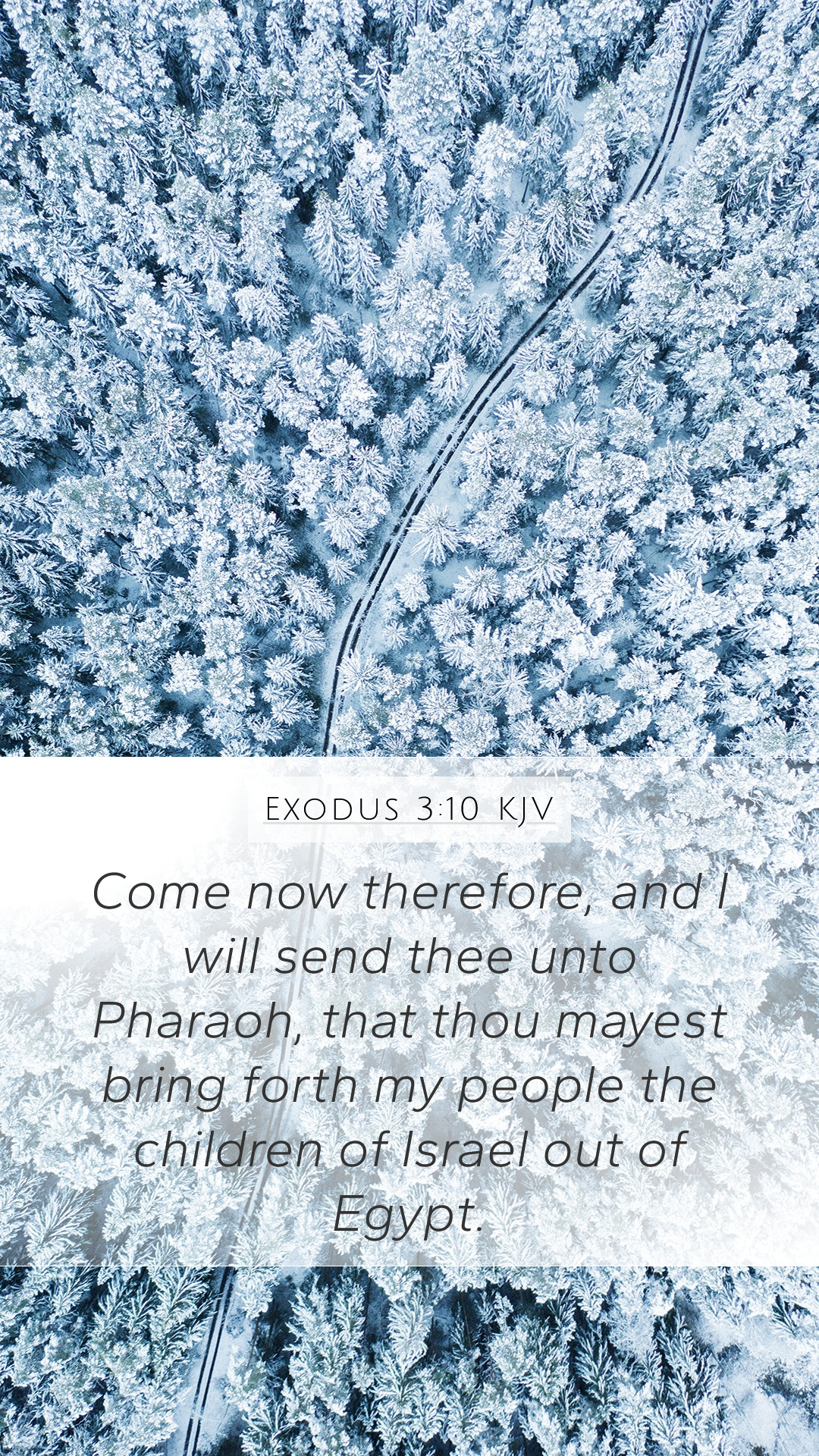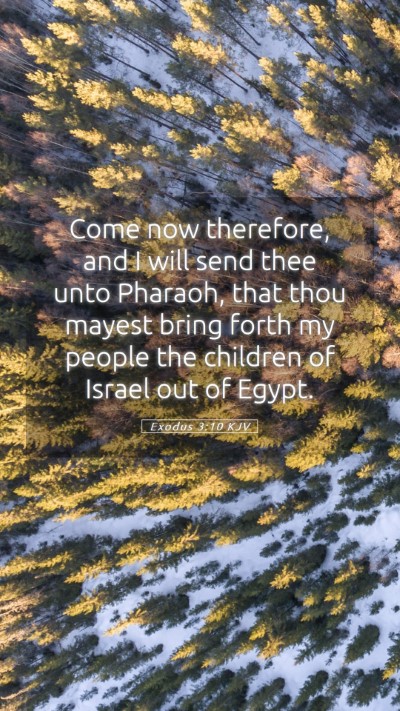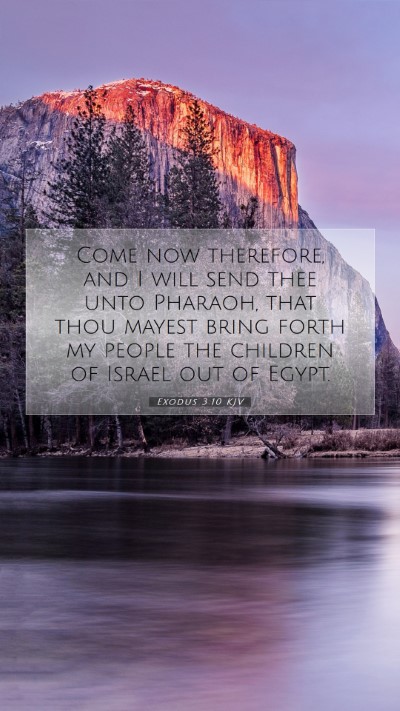Understanding Exodus 3:10
Exodus 3:10 is a pivotal verse in the narrative of Moses and his calling by God. This verse states:
"Come, I will send you to Pharaoh that you may bring my people, the children of Israel, out of Egypt."
Overview
This verse captures a defining moment in biblical history, where God commissions Moses to lead the Israelites out of bondage in Egypt. The significance of this calling extends beyond a mere task; it embodies the liberation theme central to the Exodus narrative.
Commentary Insights
Insights derived from various public domain commentaries enhance our understanding of this verse:
-
Matthew Henry:
Henry emphasizes the divine initiative in Moses' calling, highlighting God's sovereignty and purpose in choosing Moses for this monumental task. He notes that God does not call the equipped but equips the called, illustrating how God empowers those He chooses.
-
Albert Barnes:
Barnes delves into the urgency of the mission. He points out that God's command to confront Pharaoh signifies a deliberate confrontation of oppression, underscoring the importance of standing against injustice. This moment marks the beginning of liberation for the enslaved Israelites.
-
Adam Clarke:
Clarke provides historical context, discussing the social and political climate of Egypt at the time. He underlines the significance of Moses' upbringing in Pharaoh's court, positioning him as a uniquely qualified leader for this task. Furthermore, Clarke encourages readers to recognize the steadfastness required in accepting God's call, as well as the faith necessary to fulfill it.
Theological Significance
This verse presents profound theological themes:
-
Divine Calling: The act of "sending" indicates God's active role in human affairs. Believers today can reflect on their own calling, recognizing God's purpose in their lives.
-
Deliverance and Redemption: The impending exodus foreshadows God's redemptive plan. The narrative of liberation is woven throughout Scripture, culminating in the New Testament with the ultimate deliverance through Christ.
-
Leadership: Moses serves as a prototype of a leader who, despite personal doubts and inadequacies, responds to God's call. This illustrates the concept that effective leadership often involves vulnerability and reliance on God's strength.
Application to Daily Life
Understanding Exodus 3:10 invites personal application:
- Recognize the importance of responding to God’s call, whether in personal life, community service, or advocacy against injustice.
- Embrace the challenges and uncertainties that come with pursuing God-given assignments, trusting in His provision and guidance.
- Reflect on how one’s own life experiences may uniquely position them to influence and help others, just as Moses’ Egyptian upbringing played a crucial role in his leadership.
Cross References
This verse relates to several other Scripture passages that emphasize similar themes:
- Genesis 46:3-4: God reassures Jacob of His presence as Jacob prepares to descend into Egypt.
- Exodus 3:12: God promises Moses that he will be with him during this mission.
- Isaiah 43:1-3: A declaration of God’s redeeming actions towards His people, reinforcing the theme of deliverance.
Conclusion
Exodus 3:10 stands as a powerful reminder of God's ability to call ordinary individuals to accomplish extraordinary tasks. Through this verse, we gain insights into the character of God, the nature of His call, and the significance of our response. For those engaging in Bible study and seeking deeper understanding, this verse serves as a foundational text that encapsulates key themes of faith, action, and divine purpose.
Further Exploration
For those interested in expanding their understanding of Scripture, consider utilizing Bible study tools, resources, and guides. Online Bible study platforms can facilitate deeper engagement with biblical texts and foster insightful discussions in Bible study groups.


